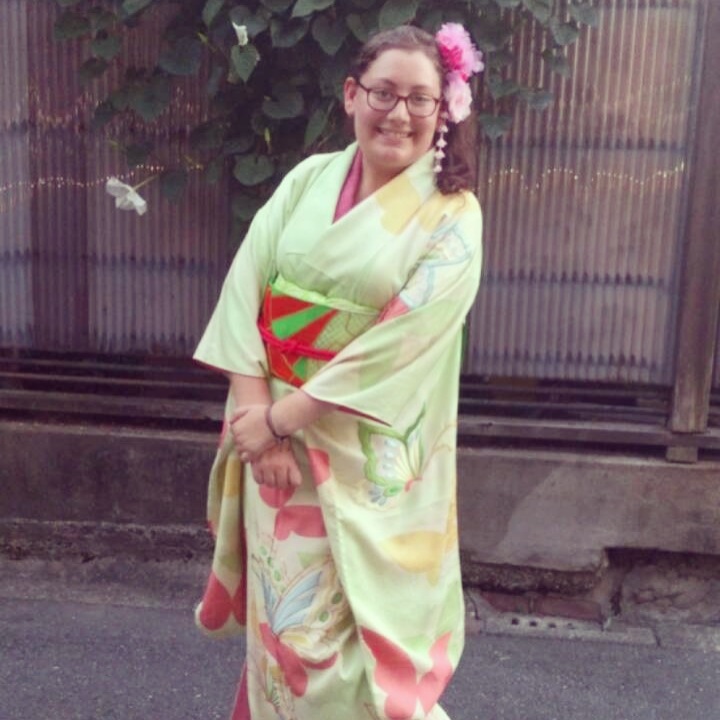Leaving instructions and guidance for future holders of your position is something all employees should be thinking about. What advice can you leave for them? What things weren’t explicitly mentioned during training that you had to learn over the course of your time there? What do you know now that you wish you knew when you started?
The intern before me left me notes for me everywhere—on the computer, on sticky notes, in note pads—and she even stopped by the office after I started to give me as much guidance as possible when I was just starting out. She told me a lot: everything from where things are stored in the office and where important files are located to what to do when someone hostile calls and what our boss’s favorite drink is (so I can stash some in my bag if I get to travel with her).

When I googled the word “posterity” the first hit was John Adams. Happy 4th, everyone.
Since then, I’ve been thinking about what I can pass on to the next person who has this job. Doing so may seem a little premature. Why would I already be thinking about the next intern when I’m not even a month and a half into the summer? Well, I’m realizing that there are things I can be doing throughout the internship to make my successor’s (and my own!) job easier. Curious what I mean? Here’s some tips that I’ve rounded up so far!
1. Get samples of good work and save them in a convenient place.

Pin this on your lapel. Everyone will know what you mean.
Whether you’re working on correspondence (as in my case) or some other process that changes from situation to situation, it’s a good idea to get some examples of the job done really well. Lucky for me, everything our office sends out gets saved into a database that I can access. It’s also a good idea to ask your supervisors for samples of strong letters that they’ve written and stash those somewhere handy. I also save copies of documents my manager or our office director have edited and revised for me (including my original copy with the changes tracked!) to that folder so that future interns have an idea of how to do it when they’re starting from scratch.
2. Learn the technology and processes related to your job better than you have to.

If you find this button, ALERT US ALL.
In this job, I’m working with legislative software that isn’t always especially user-friendly. I was lucky to get good training on the everyday basics of the software, which meets my needs about 90% of the time. But every once in a while I need to do something different than what I’m used to, so I call our tech support folks for help. They can do whatever I need remotely if I ask, but instead I always have them walk me through it and take detailed notes of the process as they describe it. This way our office has a permanent copy of these notes and won’t need to call tech support every time, and training new interns will be just that much easier.
3. Keep things organized.
“You can get ALL this for just THREE easy payments of $19.99!”
You never know what’s going to happen or whether you’ll have time to clean things up before the next person steps in. You might be scrambling to tie up all your loose ends before departing, or there may be days when someone needs to take over your work because you’re gone. Making everything organized and easy to find will make sure your successor (or substitute) can do their job efficiently. Label files, documents, and folders, and try not to tuck things away in mysterious places. Lists are also everybody’s friend. Before I leave for the day, I try to make a list of what I need to do the following day. This jogs my memory when I get in garishly early in the morning, and it provides a potential substitute clues about what I’ve been up to. The previous intern left me with a brief list of projects she hadn’t been able to finish before she left, and this gave me a place to start when I was still learning the ropes, and make for a smoother transition from her to me.
4. Keep a record of everything.

You may want to type up your notes if you’re not sure people will be able to read them.
This is in the same vein as #3, but a little more specific. Luckily for me, the documentation software we use allows for users to record pretty much everything we do and makes it available for anyone to see. If I’m working on a case for someone and can’t finish it, someone else can open the file in the program to see all my correspondence with them and any notes I made about what I was doing. The more detailed I am, the more useful my notes are to everyone involved. If you don’t have such a system in your office, make one for your work. For whatever you’re working on, make a list of things you need to do, and check tasks off as you do complete them (rather than crossing them out). Save the list even after you’ve completed everything you need to do. Store the list in a place where it will easily be matched with the project it goes with. This little bit of maintenance will save the day for anyone who wants to access your work later—whether they’re trying to pick up where you left off or just wanting a good example of what to do in a similar situation (think of #1!).
5. Leave your contact information for your successor.

TIME WARP.
The previous intern and I exchanged information when she stopped by to show me the ropes. It’s been so comforting to know that she just a message away in case I have any questions or concerns I don’t feel like I can ask my manager. Getting to know people who have held or will hold your position isn’t a bad idea either, especially if you’re just starting to work in your target area. In the short time we chatted when she was in the office, my predecessor clued me in to a couple of other really interesting internships in the area and talked with me a little about her decision to go to law school. Don’t pass up this opportunity to get to know to other young professionals with similar interests!
Do you think there’s value in planning ahead to help your successor? Or does it detract from getting your own work done? I’d love to hear your thoughts!




